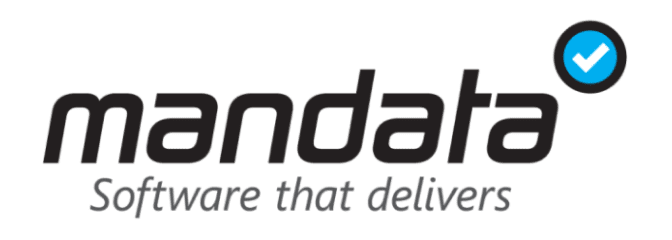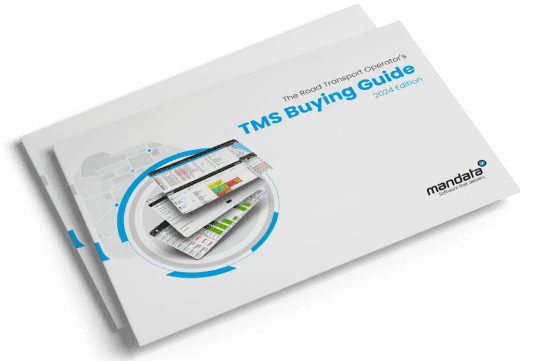Trade associations within the UK transport and haulage sectors
Without collaboration in transport, operators would face an even tougher landscape than what they are fighting against in an already difficult market. Being a member within a trade association, or industry-specific group can go a long way to helping operators find success and working together to overcome political, regional, and regulatory challenges.
In this article, we will discuss in more detail why it is worth contemplating applying to join an association and list some of the main bodies within the industry currently.
The benefits of joining a trade association or transport operator scheme
Joining a trade association or group can offer various advantages to a transport business operating in the UK. Here are some key benefits:
Networking Opportunities: With many groups often meeting regularly, it offers excellent opportunities for operators to discuss potential partnerships and other business ventures. With sector-specific groups too, it offers invaluable exposure to more potential businesses.
Industry Influence: Engaging in collaboration and communication with industry peers, particularly those with a strong reputation, enables transport operators to voice their perspectives. This interaction may facilitate discussions with regulatory bodies, potentially influencing positive changes in the industry.
Access to Information: Trade associations typically provide members with timely information about changes in regulations, industry standards, and market trends. Staying informed helps businesses adapt to evolving conditions and make informed decisions.
Peer Support: In the transport sector, facing challenges such as compliance issues, changing regulations, or safety concerns is not uncommon. Being part of a trade association provides access to a network of peers who may offer guidance and support in overcoming common industry challenges.
List of transport industry trade associations
Below is a list of some of the trade associations, governing bodies, and operator schemes that are prominent within the transport and logistics industry.
Agricultural Industries Confederation (AIC)
The Agricultural Industries Confederation represents many key sectors within the Agri-supply industry – Animal Feed, Crop Protection & Agronomy, Fertilisers, Grain & Oilseed, and Seed. AIC works on behalf of its Members by lobbying policymakers and stakeholders, delivering information, providing trade assurance schemes, and offering technical support. The AIC consists of the following trade associations:
- Universal Feed Assurance Scheme (UFAS).
- Trade Assurance Scheme for Combinable Crops (TASCC).
- Feed Materials Assurance Scheme (FEMAS).
- Fertiliser Industry Assurance Scheme (FIAS).
- European Seed Treatment Assurance Scheme (ESTA).
The Association of Lorry Loader Manufacturers and Importers (ALLMI)
ALLMI has core aims to promote the safe use of lorry loaders, protecting drivers, workers and other road users. They also promote industry standard compliance and legislated supported training for fleet owners, manufacturers, site operators, and many more industry professionals. The Association also provides support in the creation of legislation that affects their industry’s interests.
Association of Pallet Networks (APN)
The Association of Pallet Networks represents the 8 UK pallet networks, which comprise 650 companies, 30,000 vehicles and 13 million sq. ft of warehousing. Pallet Track, Pallet Line, Fortec, Palletways, Palletforce, TPN, Pallex, and UPN are all represented.
Further read: The role of pallet networks in the haulage industry
British International Freight Association (BIFA)
BIFA has a member base of over 1600 members in the logistics and supply chain sector, known generally as freight forwarders, who offer a wide range of services within these various modes. Members of BIFA are organisations engaged in the movement of freight to/from the UK by all modes of transport: air, road, sea and rail. Some members are also provided customs clearance and other cross-border services.
Chartered Institute of Logistics and Transport (CILT);
The Chartered Institute of Logistics and Transport is the associations for professionals involved in the movement of goods and people, and their associated supply chains. Delivering career development, relevant information, networking and professional recognition.
Construction Logistics and Community Safety (CLOCS)
CLOCS is a national Standard that requires all stakeholders in construction to take responsibility for health & safety beyond the hoardings.
Further read: The benefits of joining CLOCS
Cold Chain Federation
Cold Chain Federation is the voice of the temperature-controlled supply chain in the UK. Members are made up of businesses who operate frozen and chilled storage facilities and/or temperature-controlled distribution vehicles plus companies who have mutual commercial or policy interests.
Department for Transport (DfT)
The DfT works with agencies and partners to support the transport network, helping the UK’s businesses, and getting people and goods travelling around the country. They plan and invest in transport infrastructure to keep the UK on the move.
Driver & Vehicle Standards Agency (DVSA)
The DVSA carry out driving tests, approves people to be driving instructors and MOT testers, and carries out tests to make sure lorries and buses are safe to drive. They also carry out roadside checks on drivers and vehicles and monitor vehicle recalls. DVSA is an executive agency, sponsored by the Department for Transport.
Environmental Services Association (ESA)
The ESA is the trade body representing the UK’s resource and waste management industry. Their members strive to work towards operating within a circular economy, and more eco-friendly processes.
Fleet Operator Recognition Scheme (FORS)
FORS assesses and recognises fleet performance in key areas: environmental impact, safety, and operational efficiency. The program provides a framework and sets benchmarks to help operators enhance their performance in these areas.
Further Read: The benefits of joining FORS
Freight Transport Association (FTA) / Logistics UK
Logistics UK is one of the biggest business groups in the UK, supporting, shaping and standing up for efficient logistics. They mention that they are the only business group in the UK that represents all of logistics, with members from the road, rail, sea and air industries, as well as the buyers of freight services such as retailers and manufacturers, whose businesses depend on the efficient movement of goods.
Heavy Transport Association (HTA)
The HTA was formed in 1983 by a group of heavy haulage operators struggling to cope with less than clear regulations regarding the movement of abnormal loads. According to the HTA, it seemed apparent that enforcement authorities/police officers were not happy to have abnormal loads on the roads and so the operators decided that something had to be done.
Irish Road Haulage Association (IRHA)
The IRHA was founded in 1973 to represent and promote the interests of Ireland’s licensed road haulage industry – on a national and international level. Promoting professionalism, excellence and safety in road transport.
Road Haulage Association (RHA)
The RHA is a member-led trade association supporting people and businesses in the road transport industry. They offer a voice for their members to work with governments, policymakers, and local authorities across the UK on the issues most important to them. They campaign on a breadth of priorities including changes to legislation, rising fuel costs, better roadside facilities, and the transition to a Net Zero transport system.
Transport Association (TA)
The TA consists of around 60 haulage companies, providing a nationwide network of 5,700 vehicles and 175 sites. Member companies offer professional transport, storage and distribution services to retailers and manufacturers in the UK, and increasingly Europe.
Transport Salaried Staff’s Associates (TSSA)
TSSA is an independent trade union for the transport and travel industries. They have thousands of members right across the UK and Ireland, working for the railways and associated companies, as well as ferries, bus services and the travel trade. TSSA secures quality pay rises, protects jobs and ensures safe workplaces.
UK Warehousing Association (UKWA)
The UKWA helps its members operate safely, ethically and profitably, safeguarding industry standards and ensuring their views are represented clearly and effectively to the government. They provide professional business advice and strategic business development support to members, who also benefit from a wide range of specialist and discounted services.
Women in Transport (WIT)
Women in Transport is a not-for-profit that empowers women in the industry to maximise their potential. Membership provides exclusive access to events, their professional development programmes and the All-Party Parliamentary Group for Women in Transport.
Where can software help?
To pass the requirements needed to become a member of some of these associations and groups, operators often need to adhere to some operational conditions. For example, to become a FORS-accredited member, operators have to go through an audit process demonstrating how they operate efficiently and adhere to industry compliance. Using technology, such as Transport Management Software (TMS), helps operators manage and coordinate haulage operations more efficiently than planning without.
Read more here: https://www.mandata.co.uk/insights/how-a-tms-could-help-obtain-fors-accreditation/
Joining a trade association in the UK can provide a transport business with a range of benefits, including advocacy, networking, information access, cost savings, and opportunities for professional development.

